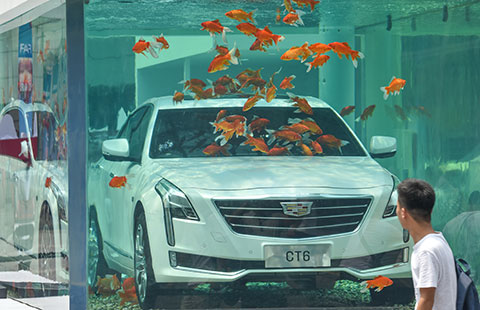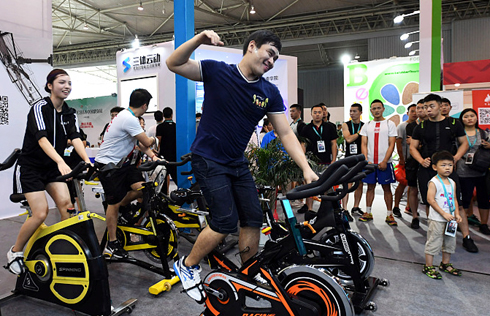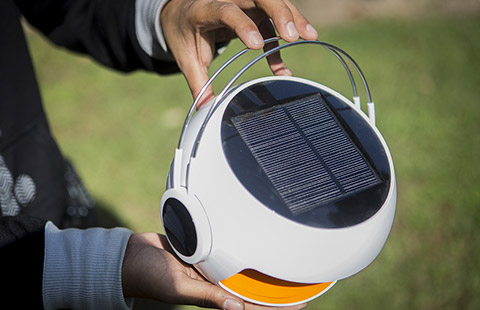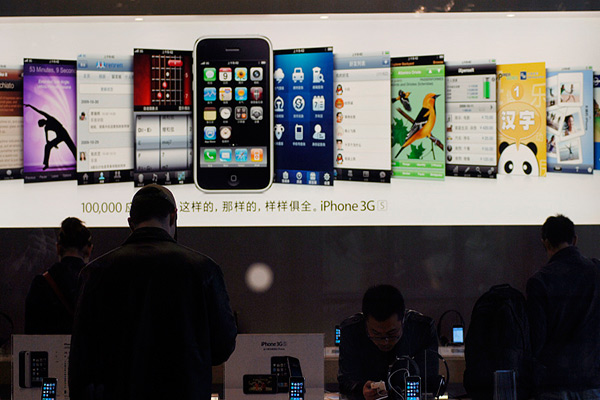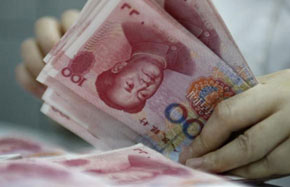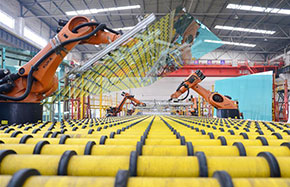Big US auto discounts are bane to Asian carmakers' profits
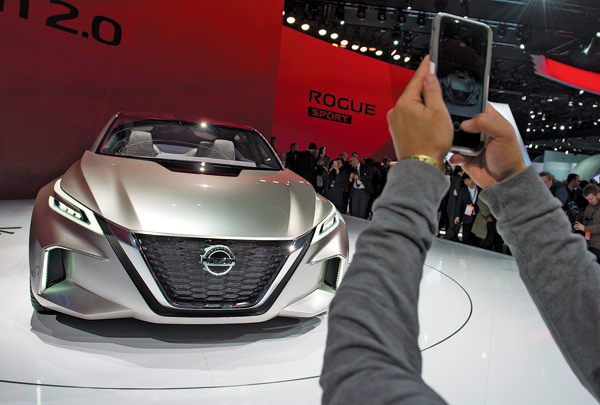 |
|
The Nissan Vmotion 2.0 concept sedan catches visitors' eyes at the 2017 North American International Auto Show in Detroit, the United States. PROVIDED TO CHINA DAILY |
Asian carmakers' profits are taking hits from having to spend more to move metal in the United States.
Nissan Motor and Hyundai Motor both cited higher incentive spending in the US as reasons behind a slump in quarterly profit.
More evidence of the industry's pain is likely to come this week, with Toyota Motor and Honda Motor scheduled to report earnings.
"Competition is rising in the US," Joji Tagawa, a Nissan corporate vice-president, said on Thursday at the company's earnings briefing in Yokohama, Japan.
Marketing and selling expenses were the biggest contributor to its 13 percent decline in operating profit. The company spent $4,086 on incentives for each vehicle last month, the highest level among Asian auto brands, according to Autodata.
Nissan is stepping up the introduction of SUVs to make up for the loss in the sedan market and benefit from faster growth in the crossover and truck segment.
Jose Munoz, Nissan's North American chief, has said the company will generate 60 percent of sales from SUVs, which should help improve profitability.
Among the models expected to help drive sales are the Rogue Sport, refreshed Qashqai and X-Trail, the company said on Thursday.
Two new models under its Chinese Venucia brand will also contribute to second-half deliveries, said Jun Seki, its China chief.
Nissan has been expanding its US fleet business as some dealers criticize its use of retailer incentive programs and rising discounts, both of which create a drag on earnings.
The company risks reducing the value of its models over time, a hidden cost to buyers that also makes it harder to finance competitive leases.
"Their US performance is kind of tricky," Tatsuo Yoshida, an analyst at Sawakami Asset Management, said before the earnings announcement.
"They're very aggressive in growing sales and they've utilized all means of marketing, including incentives, leasing and the fleet sales. It's a risky approach."
Industrywide deliveries of cars and light trucks dropped in each of the first six months of the year in the US. Both Ford Motor and General Motors have cut their annual sales projections as collapsing demand for sedans overwhelms US customers' still-ample appetite for SUVs and pickups.
"You always see more incentives when you're in a post-peak cycle," said Michelle Krebs, a senior analyst at Autotrader.
"What we're seeing across all car companies is incentives are biggest on cars, especially small and midsize cars."
Hyundai's spending
At Hyundai, spending per car rose 42 percent to $3,259 in June. That's the highest level of incentives offered by the company since at least the global financial crisis in 2008 and 2009, according to Korea Investment & Securities.
Part of that is due to the South Korean carmaker's portfolio. It's having to offer more discounts to sell its predominantly sedan lineup at a time when US consumers are clamoring for SUVs and pickup trucks.
Hyundai's Chief Financial Officer Choi Byung-chul predicted competition in the US market will get even tougher as demand for sedans continues to fall and SUV sales growth slows.
He said the Seoul-based automaker will "focus on stabilizing the level of incentives and inventories".
The crisis in its two biggest markets comes at a critical time for Hyundai, which has set a record delivery goal of 5.08 million vehicles for 2017, after missing its target for a second straight year. Hyundai's first-half sales dropped 8.2 percent to 2.2 million cars.
Midsize makeovers
The midsize sedan market probably will see some of the stiffest competition among automakers.
Toyota updated its Camry last month, while Honda is introducing its new Accord in July.
The two models are the best-selling midsize cars in the US and will put pressure on Nissan's Altima, which has seen sales fall this year.
Hyundai is introducing the new Kona, its first global compact SUV, and rolling out the high-performance i30N hatchback and Genesis luxury G70 sedan, which the company expects will help improve sales in the second half.
Toyota, which is scheduled to release its first quarter fiscal results on Aug 4, will probably post a 16 percent drop in operating profit, while Honda could report a 13 percent decline, according to analyst estimates.
Bloomberg









